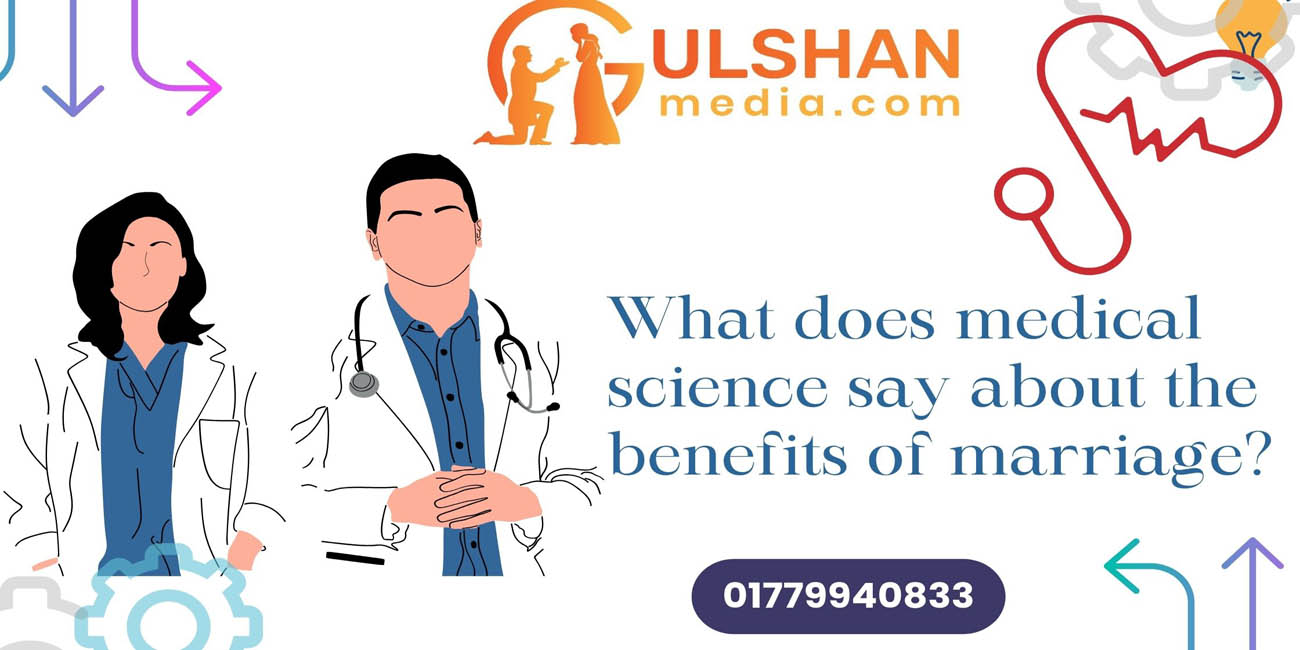What does medical science say about the benefits of marriage?
What does medical science say about the benefits of marriage?

Exploring the Benefits of Marriage Through the Lens of Medical Science
Throughout history, marriage has been recognized as a cornerstone of human society, a bond that transcends personal fulfillment and extends into the realm of health and well-being. Medical science, with its rigorous approach to understanding the human condition, has shed light on the profound benefits of marriage, revealing a connection between marital status and a multitude of positive health outcomes.
Couple holding hands on a park bench, symbolizing the connection between marriage and health.
Marriage, a lifelong commitment between two individuals, has long been recognized as a cornerstone of human society, fostering emotional connection, social support, and a sense of belonging. While the benefits of marriage extend beyond personal fulfillment, medical science has shed light on the profound impact of marriage on physical health, mental and emotional well-being, and even cognitive function.
Studies have consistently demonstrated a positive correlation between marriage and reduced mortality rates. Married individuals tend to live longer and experience a lower risk of death from various causes, including cardiovascular diseases, cancer, and stroke. This longevity effect is attributed to several factors, including:
- Healthier Lifestyle Choices: Married couples often adopt healthier lifestyle habits, engaging in regular exercise, maintaining a balanced diet, and avoiding harmful behaviors like smoking and excessive alcohol consumption. These positive changes can reduce the risk of chronic diseases and contribute to overall well-being.
- Reduced Stress Levels: Marriage provides a sense of emotional support and stability, which can help buffer individuals from the negative effects of stress. Chronic stress is known to contribute to a weakened immune system, increased inflammation, and an overall decline in health. The emotional support and companionship found in marriage can help individuals manage stress more effectively, leading to improved physical health outcomes.
- Enhanced Access to Healthcare: Married individuals are more likely to have access to healthcare services and receive regular medical checkups, leading to early detection and treatment of potential health issues. This proactive approach to healthcare can help prevent the progression of chronic diseases and improve overall health outcomes.
Improved Mental and Emotional Well-being
couple cuddling on a couch, symbolizing the emotional support found in marriage
Marriage fosters a sense of belonging, intimacy, and emotional support, which have a profound impact on mental health and emotional well-being. Studies have shown that married individuals experience:
- Reduced Depression and Anxiety: The social connection and emotional support provided by marriage can act as a buffer against depression and anxiety, reducing the risk of developing these mental health disorders. The sense of companionship and shared experiences can help individuals cope with life’s challenges and maintain a positive outlook.
- Increased Happiness and Life Satisfaction: Married individuals generally report higher levels of happiness, life satisfaction, and overall well-being compared to their unmarried counterparts. The sense of love, security, and belonging found in marriage can contribute to increased life satisfaction and a greater appreciation for life’s joys.
- Improved Social Support: Marriage provides a strong social network, which can help individuals cope with life’s challenges, promote resilience, and foster a sense of belonging. The support of a spouse can help individuals navigate difficult times, provide encouragement, and offer a listening ear, contributing to emotional well-being.
Enhanced Cognitive Function
couple playing chess, symbolizing mental stimulation in marriage
Marriage has also been shown to have a positive impact on cognitive function, reducing the risk of developing dementia and Alzheimer’s disease. Several factors may contribute to this protective effect:
- Mental Stimulation: Marriage provides ongoing mental stimulation through shared activities, conversations, and problem-solving, which can help maintain cognitive function and protect against age-related decline. Engaging in mentally stimulating activities with a spouse can help keep the mind active and reduce the risk of cognitive decline.
- Reduced Stress: The stress-buffering effects of marriage can also contribute to improved cognitive function, as chronic stress can have detrimental effects on brain health. The stress relief and emotional support found in marriage can help protect cognitive function and reduce the risk of dementia.
- Enhanced Social Engagement: Social engagement, a hallmark of marriage, has been shown to promote cognitive function and reduce the risk of dementia. Sharing experiences, engaging in social activities, and maintaining social connections can help preserve cognitive abilities and promote brain health.
Enhanced Physical Health
Studies have consistently demonstrated a link between marriage and reduced mortality rates. Married individuals tend to live longer and experience a lower risk of death from various causes, including cardiovascular diseases, cancer, and stroke. This longevity effect is attributed to several factors, including:
- Healthier Lifestyle Choices: Married couples often adopt healthier lifestyle habits, engaging in regular exercise, maintaining a balanced diet, and avoiding harmful behaviors like smoking and excessive alcohol consumption.
- Reduced Stress Levels: Marriage provides a sense of emotional support and stability, which can help buffer individuals from the negative effects of stress. Chronic stress is known to contribute to a weakened immune system, increased inflammation, and an overall decline in health.
- Enhanced Access to Healthcare: Married individuals are more likely to have access to healthcare services and receive regular medical checkups, leading to early detection and treatment of potential health issues.
Improved mental and emotional well-being is a crucial aspect of overall health and quality of life. It encompasses a range of positive feelings and experiences, including happiness, contentment, resilience, and emotional stability. When our mental and emotional well-being is strong, we are better equipped to handle life’s challenges, maintain healthy relationships, and pursue our goals with enthusiasm and determination.
Numerous factors contribute to improved mental and emotional well-being, including:
- Positive Relationships: Strong social connections, particularly close and supportive relationships, provide a sense of belonging, love, and acceptance, which are essential for emotional well-being. Nurturing these relationships through quality time, shared experiences, and open communication can significantly enhance our mental and emotional state.
- Self-Care Practices: Prioritizing self-care is essential for maintaining mental and emotional well-being. This includes practices such as adequate sleep, a balanced diet, regular exercise, and stress management techniques like meditation or yoga. By taking care of our physical and mental needs, we can better manage our emotions and cope with stress.
- Purpose and Meaning: Having a sense of purpose in life, whether it’s through work, hobbies, or personal goals, provides direction and motivation. When we feel like our actions have a meaningful impact, we experience increased satisfaction and a sense of fulfillment, which contributes to our overall well-being.
- Optimism and Positive Thinking: Cultivating a positive outlook and focusing on the good things in life can significantly improve our mental and emotional state. Practicing gratitude, engaging in activities that bring joy, and surrounding ourselves with positive people can help maintain a positive mindset and boost our well-being.
- Seeking Professional Help When Needed: When facing emotional challenges that are difficult to manage on our own, seeking professional help is a sign of strength and self-awareness. Therapists, counselors, and other mental health professionals can provide support, guidance, and effective treatment strategies to help address and overcome emotional difficulties.
- Mindfulness and Emotional Awareness: Developing mindfulness practices, such as meditation or deep breathing exercises, can enhance our awareness of our thoughts, emotions, and bodily sensations. This increased awareness can help us recognize and manage negative emotions more effectively, promoting emotional well-being.
- Resilience and Coping Mechanisms: Building resilience, the ability to bounce back from setbacks and challenges, is crucial for maintaining emotional well-being. Developing healthy coping mechanisms, such as problem-solving skills, stress management techniques, and emotional expression, can help us navigate life’s ups and downs with greater resilience.
- Healthy Lifestyle Choices: Maintaining a healthy lifestyle, including regular exercise, a balanced diet, and adequate sleep, has a profound impact on our mental and emotional well-being. These habits can reduce stress, improve mood, and enhance cognitive function, all of which contribute to emotional well-being.
- Self-Acceptance and Self-Compassion: Embracing self-acceptance and practicing self-compassion are essential for cultivating emotional well-being. Accepting our imperfections and treating ourselves with kindness can reduce self-criticism and foster a more positive self-image, which in turn contributes to emotional well-being.
- Continuous Self-Improvement: Striving for continuous self-improvement, whether it’s learning new skills, expanding our knowledge, or pursuing personal growth, can enhance our sense of purpose and satisfaction, which are key components of emotional well-being.
Prioritizing mental and emotional well-being is a lifelong journey that requires ongoing effort and dedication. By incorporating these strategies into our daily lives, we can cultivate a more positive and resilient emotional state, enabling us to live a more fulfilling and meaningful life.
Enhanced Cognitive Function
Marriage has also been shown to have a positive impact on cognitive function

, reducing the risk of developing dementia and Alzheimer’s disease. Several factors may contribute to this protective effect:
- Mental Stimulation: Marriage provides ongoing mental stimulation through shared activities, conversations, and problem-solving, which can help maintain cognitive function and protect against age-related decline.
- Reduced Stress: The stress-buffering effects of marriage can also contribute to improved cognitive function, as chronic stress can have detrimental effects on brain health.
- Enhanced Social Engagement: Social engagement, a hallmark of marriage, has been shown to promote cognitive function and reduce the risk of dementia.
Overall, the benefits of marriage extend far beyond the realm of personal fulfillment and emotional connection. Medical science has provided compelling evidence that marriage has a profound impact on physical health, mental and emotional well-being, and even cognitive function. As we continue to explore the intricate connections between marriage and health, it becomes increasingly evident that marriage is not just a social institution but a powerful force that contributes to overall well-being and longevity.
Conclusion
Medical science has provided compelling evidence that marriage is not just a social institution but a powerful force that contributes to overall well-being and longevity. The benefits of marriage extend far beyond the realm of personal fulfillment and emotional connection, encompassing physical health, mental and emotional well-being, and even cognitive function. As we continue to explore the intricate connections between marriage and health, it becomes increasingly evident that marriage plays a significant role in promoting overall health and longevity.
free marriage site in bangladesh
“বিয়ে সংক্রান্ত যেকোনো তথ্য ,সেবা এবং পরামর্শ পেতে যোগাযোগ করুন গুলশান মিডিয়ার সাথে। ” কল করুন: 01779940833
Email : gulshanmedia2@gmail.com







